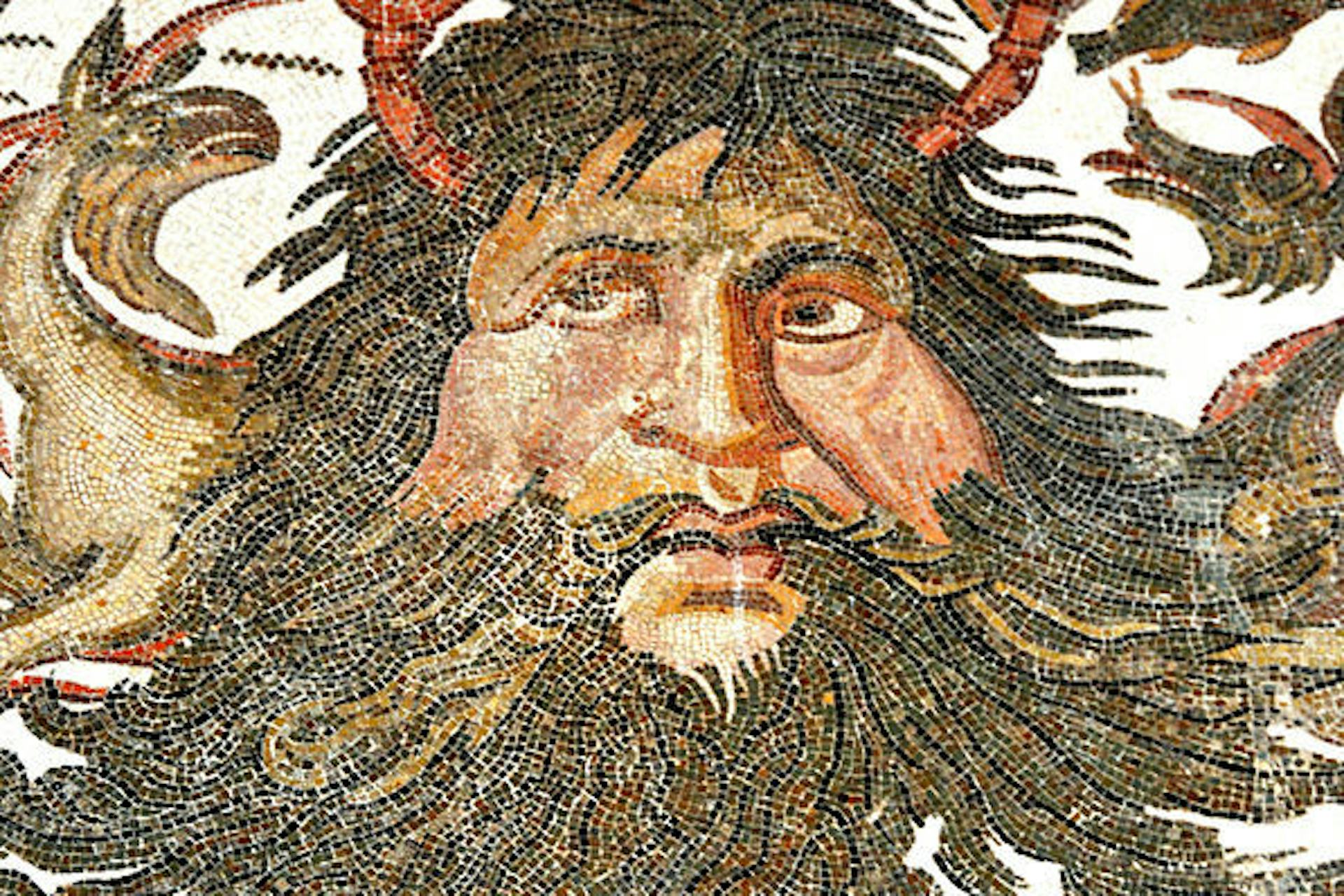Pontus

Imperial Roman mosaic from Tunisia showing Pontus, bearded and with crab-claw horns. Bardo National Museum, Tunis (n.d.).
Dennis JarvisCC BY-SA 2.0Overview
As one of the primordial gods of the Greeks, Pontus personified the sea. He was usually called the child of Gaia, the personification of the earth and one of the original entities to come into existence. Together with Gaia, Pontus fathered the earliest sea deities. These included Nereus, who went on to father the beautiful Nereids; Phorcys and Ceto, who together produced several monstrous offspring; and Thaumas and Eurybia.
Etymology
The name “Pontus” (Greek Πόντος, translit. Pontos) is also the Greek word meaning “sea.” The word itself is usually thought to come from the Proto-Indo-European root *pont-eh₁-, meaning “path” (compare to the Sanskrit pánthāḥ and Latin pons).[1]
Pronunciation
English
Greek
Pontus Πόντος (translit. Pontos) Phonetic
IPA
[PON-tuhs] /ˈpɒn təs/
Attributes
Pontus was more than a god of the sea: he was the sea itself, just as Gaia was the earth and Uranus was the sky. Hesiod described him as “the fruitless deep with his raging swell.”[2] Pontus’ children and grandchildren represented many of the most important sea deities of Greek mythology.
When he was depicted in ancient art, Pontus generally took the appearance of a bearded, powerful old man rising up from the sea. Like the Titan Oceanus, another god associated with the sea, Pontus was often represented with crab-claw horns growing out of his head.
Family
According to Hesiod’s Theogony, Pontus was the son of Gaia, the personification of the earth, who gave birth to him on her own.[3] The Roman mythographer Hyginus, however, made him the son of Gaia and Aether (“Upper Air”).[4] Pontus’ siblings included Uranus (“Sky”) and the Ourea (“Mountains”)—who, like Pontus, were born without a father—as well as the children that Gaia had with Uranus (the Cyclopes, the Hecatoncheires, and the Titans).[5]
Family Tree
Mythology
Pontus was usually described as the son of Gaia, with whom he fathered Nereus, Thaumas, Phorcys, Ceto, and Eurybia. Some sources added that he married Thalassa, the feminine personification of the sea, while others gave slightly different versions of his genealogy (see above).
In Greek mythology, Pontus is not much more than the personification of the sea—there are no known myths about him. His role is primarily cosmogonic and genealogical: in other words, Pontus represents one of the primordial gods and is himself the father of other gods.